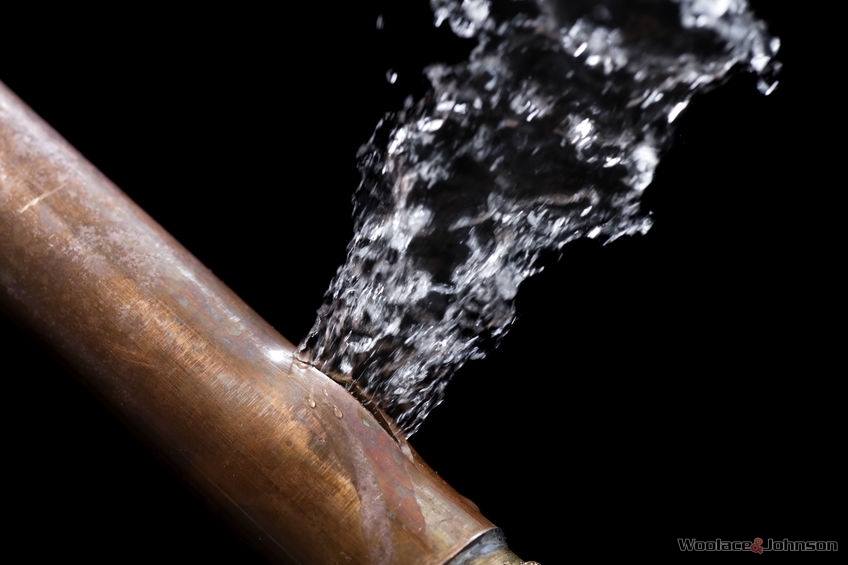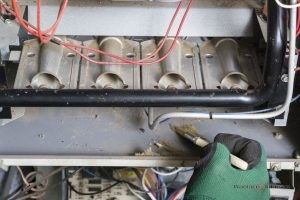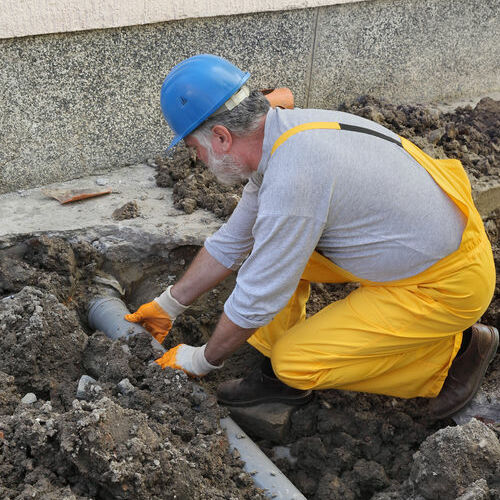
Dealing with Drainage Issues in Your Home
Are you noticing your sinks don’t drain water quickly anymore? Does the water pressure vary when you turn the tap on? While variations in draining and water pressure are normal, drastic changes are not. Consistency is a usual sign of a plumbing system that is in good condition, but when clogs or damage happen, things can go wrong. If you are noticing any issue with the way your water comes and goes from your home, you may be in need of assistance. For that contact Woolace & Johnson, 419-546-8424, about sewer line repair in Stryker, Bryan, and Napoleon, OH.
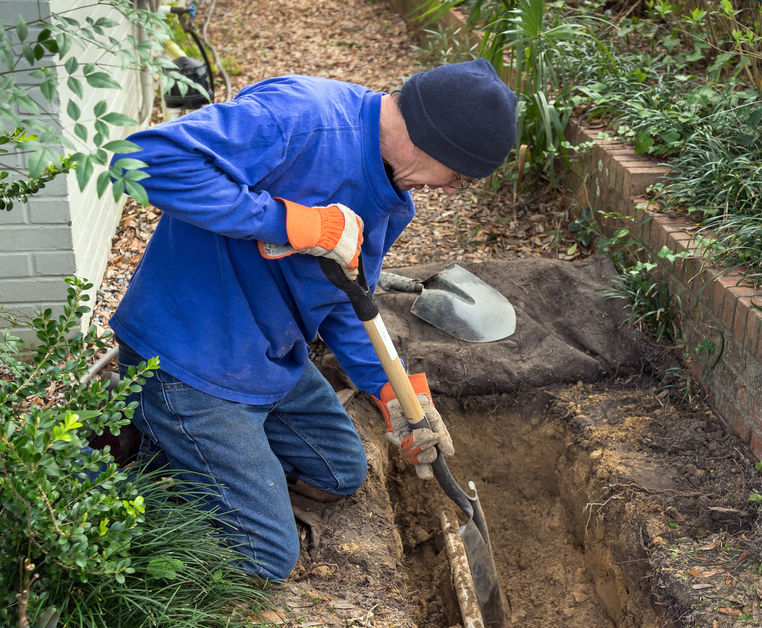
Identifying Sewer Line Problems
If you are dealing with slow drainage or water pressure issues, you may have a sewer line problem. How can you tell? There are a few signs to pay attention for, like:
- Frequent Backups: Drains that always seem to be clogged no matter what you do are a big sign of a sewer line clog. Don’t use “liquid drain cleaners” but rely on a professional instead.
- Strange Reactions: If you notice when you flush the toilet, the bathtub drain overflows, that is a sign of a sewer line clog. Something is preventing waste or water from following its normal course, so it has to go somewhere else.
- Yard Flooding: When you start to notice water ponding in your yard, it could be a sign of sewer line damage. If there is damage from tree roots or shifting ground, it can cause a leak that is flooding your property.
- Bad Smells: One tell-tale sign of a sewer line clog or problem is lingering smells. If you are starting to notice, or have noticed a bad smell coming from a shower or tub drain, something isn’t right. There may be a block or a break causing waste to be forced elsewhere.
As soon as you’ve identified an issue, the next step is to call a professional for a sewer line cleaning. But before they can do that, they need to inspect your plumbing to determine what is causing the issue in the first place.
Causes of Sewer Line Clogs
There are many causes for a sewer line clog and it can be difficult to determine that cause without some help. Scheduling an appointment with sewer line cleaning contractors so they can inspect the pipes is the best route to take. They can use video equipment to find where a clog may be. Once you know that, you can then take the necessary steps to correct the issue.
- Pipe Damage: Damage to your pipes will cause regular issues with your drainage. When older copper pipes begin to corrode, they can leak water into your home or around your property. If this happens, you’ll notice a drop in water pressure and slow drainage.
- Sagging: One thing that is hard to see, but a big cause for clogs is sagging pipes. What that means is, when the ground shifts or moves around your pipes, it can cause them to droop and sag. Should this happen, connections can become loose resulting in water leaks.
- Tree Root Infiltration: Probably one of the most common reasons for sewer line clogging is tree roots. A sewer line clogged with tree roots won’t be able to drain or move water effectively. It can also mean that your pipes may be damaged or broken.
- Flushing Dirt and Debris: When an excess of the wrong things are flushed down the drain, they can quickly collect in your sewer line creating a clog. Dirt, debris, hair, and more get distractedly washed down your drains on a consistent basis leading to a greater chance of clogs and blockages.
- Grease: The number one culprit for a sewer line clog is grease. When grease is washed down a drain, it hardens around the interior pipes. It also collects things like dirt and hair, which only add to a clog.
The best way to avoid or prevent clogs in the future is to schedule regular sewer line cleaning services. Doing so will ensure your plumbing is always in good condition. That being said, it’s still important to schedule separate inspections of your plumbing. Think of it the same as when you need to replace your roof. You may schedule regular maintenance, but you do always want someone to inspect your roof or your plumbing before you begin repairs of any kind.
Frequently Asked Questions
- How often should sewer lines be cleaned?
- As a good preventative measure, homeowners should schedule cleanings every 18-22 months – so about once every 2 years. If you are experiencing issues more often, then you will need to schedule a time for a plumber to take video of your lines.
- How much is sewer line cleaning?
- On average, a sewer line cleaning will cost about $299. It can range from $173 to over $400 depending on the type of service needed. Snaking, or rodding, will usually be the cheapest route.
- What do you do if your sewer line is clogged?
- There are several drain cleaning products on the market that can help you unclog or remove as much of a clog from your drains. But if your main sewer line is clogged, you will need to contact a company to provide cleaning services.
- Why does my main drain keep clogging?
- Something is being flushed down your drains, creating clogs and blockages. If it’s not that, then something is preventing the drain from efficiently expelling water and waste. That could be tree roots or damaged piping.
- How much does it cost to camera a sewer line?
- The average is between $250 and $500 to take video of the inside of a sewer line. It could cost more or less depending on how much pipe line needs to be viewed and if the inspection is a solo service or being done in conjunction with another service.
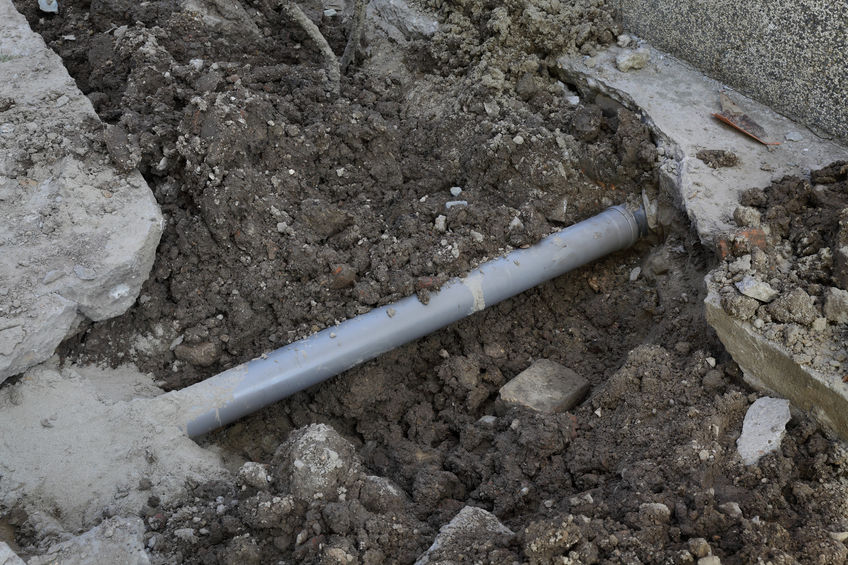
Connect With Woolace & Johnson for More Services!
Want to know more about our services? Give us a call at 419-546-8424 to talk about what we can do to help you, including sewer line repair in Stryker, Bryan, and Napoleon, OH.


